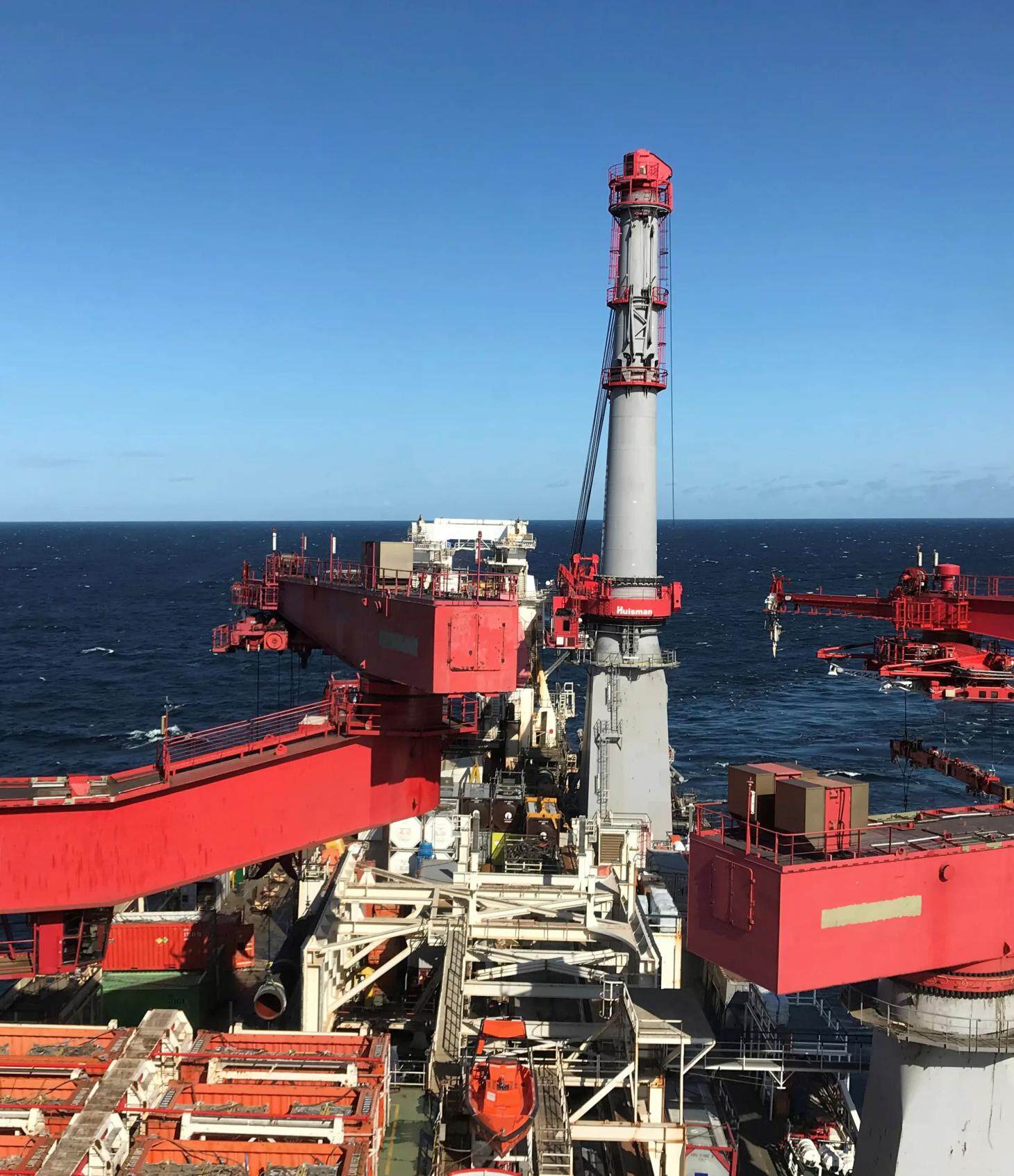- Turkey will benefit no matter how much gas enters Europe through these pipelines in the future
- Turkey's establishment of energy corridors can further meet energy needs

European natural gas prices have hit record highs, and many countries, including Germany, are actively looking for new channels to import energy. Outside analysts believe that Turkey, which connects the Eurasian continent, is expected to build an "energy corridor" to control the main routes of natural gas transmission to Europe in the Eastern Mediterranean, Russia and the Caucasus. Can Turkey Really Build an "Energy Corridor"? To what extent can this "energy corridor" alleviate the European energy crisis?
Europe seeks to diversify energy supply
Deep in the energy crisis, Europe is speeding up its efforts to diversify its energy supply channels. The analysis believes that the most likely new sources of energy supply come from Central Asia, the Eastern Mediterranean and the Middle East Gulf countries.

Rajep Kutai Karatsa, Professor of International Relations at Aydin University in Turkey: The shortest and cheapest way for energy from these regions to Europe is through Turkey. This is also why Turkey's strategic and geopolitical importance has grown significantly.
After the outbreak of the Russian-Ukrainian conflict, Turkey did not participate in sanctions against Russia, and the "Turkey Stream" natural gas project jointly developed with Russia has been operating normally, continuing to transport Russian natural gas to Turkey and Europe.
In July 2022, the EU and Azerbaijan signed a memorandum on expanding cooperation in the energy sector and increasing Azerbaijan's natural gas transmission to Europe. It is worth noting that as early as December 2011, Azerbaijan and Turkey signed a memorandum of cooperation on the "joint construction of the Trans-Anatolia" natural gas pipeline project to transport natural gas from Azerbaijan's Caspian Sea gas fields to Europe via Turkey. That said, no matter how much natural gas enters Europe via these pipelines in the future, Turkey will benefit.

Rajep Kutai Karatsa, professor of international relations at Aydin University, Turkey: Turkey doesn't just want to build energy corridors. In fact, Turkey also wants to create an environment where energy can be stored, re-priced and sold.
Analysts believe that Turkey itself is a country that relies heavily on energy imports, so the establishment of energy corridors can not only further meet energy needs, but also enhance regional influence. But the problem is that in order to achieve this goal, I am afraid that there are still many practical difficulties.
The existing gas transmission capacity of "Turkey Creek" is far from meeting European demand
Experts point out that, whether it is the Trans-Anatolia Natural Gas Pipeline Project or the "Turkey Stream" project, the amount of natural gas that can be transported to Europe is far from meeting the current huge demand in Europe.
Turkish energy expert Ufok Orgon: The Trans-Anatolian Natural Gas Pipeline (TANAP) transports 16 billion cubic meters of natural gas to Europe every year, while Russia's annual supply of natural gas to European countries is close to 155 billion cubic meters , so it's really not worth mentioning compared to it, not even 20%.
High-risk investment in energy corridor infrastructure construction
There are reports that Turkey is currently discussing the construction of energy pipelines with Israel, and plans to transport the seabed natural gas extracted by Israel to Europe through Turkey. However, Orgon believes that the new pipeline faces a series of problems of high investment and high risk.

Turkish energy expert Ufok Orgon: Such a large construction and such a large investment will inevitably require a large amount of money, but Turkey does not have it. We need foreign direct investment. If you want to build a multi-year gas pipeline, make sure it's profitable. But if the price of natural gas cannot continue to be high in the future, which investor will be so interested in investing?
Complex geopolitics is also one of the major challenges
Complex geopolitics is also one of the challenges. Turkey used to be an important strategic partner of Israel in the Middle East, but in the past decade or so, the two countries have experienced constant frictions. Although the two sides recently announced the full restoration of diplomatic relations, Turkey has not changed its position on key issues such as Palestine.
Analysts believe that complex diplomatic relations may be a key factor hindering energy cooperation between the two countries. In addition, in the oil and gas resources cooperation in the Eastern Mediterranean, Turkey is at odds with countries in the region such as Greece, Cyprus, and Egypt. Some analysts believe that judging from the current situation and objective conditions, it remains to be observed that Turkey wants to become an important energy hub in the region. Editor / Xu Shengpeng
Comment
 Praise
Praise
 Collect
Collect
 Comment
Comment
 Search
Search














Write something~